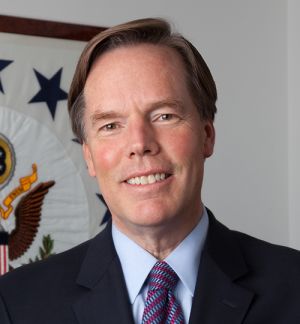When Senator John Kerry is confirmed as secretary of state later this month, he will encounter a number of complex tests as America’s top diplomat. The first is his challenging inbox, which includes the Afghanistan war, Iranian and North Korean nuclear threats, an increasingly violent Middle East, the lingering euro debt crisis, and China’s challenge to American power in Asia. It may well be the most daunting agenda a secretary of state has faced in a generation.
Kerry will also inherit a bruised State Department reeling from the Benghazi attacks and the tough Accountability Review Board judgment of “systemic failures” in diplomatic security. Facing further cuts in an already depleted State Department budget, Kerry will need to move fast to rebuild morale in the foreign service.
Kerry has a third challenge — to fill the shoes of Hillary Clinton, who is universally regarded as a highly effective secretary of state and Gallup’s most admired female leader of 2012. Clinton deserves all the accolades she has received. Enormously popular with the rank and file at State, she has broadened our diplomatic engagement by emphasizing women, development, and social issues, and brought energy, leadership, and compassion to our foreign policy.
Despite these very real tests, Kerry has an opportunity to be a pivotal secretary of state. No one is better prepared by temperament or unrivaled global experience to be America’s foreign policy vicar. He will wear multiple hats — helping President Obama shape America’s global strategy, traveling constantly to represent the United States at meetings on every continent, and managing a sprawling cabinet agency with 275 embassies and consulates around the world. But he will be judged, ultimately, by his ability to resolve the most serious international crises. His most important role will thus be as dealmaker-in-chief in persuading allies and friends to address such critical challenges as climate change and terrorism, while cajoling, pushing, and threatening international troublemakers to get in line.
In this high-wire role as the most influential global troubleshooter, Kerry can look for inspiration to recent secretaries of state who recognized that the heart of their job was to negotiate breakthrough agreements to end the most serious crises. That is what Henry Kissinger did so brilliantly in persuading warring Egyptians and Israelis to disengage in the Sinai following the 1973 Yom Kippur War. It was George Shultz’s success in negotiating nuclear arms reductions with the Soviets and Madeleine Albright’s in stopping the Serb slaughter of innocent Muslims in Kosovo. More recently, it was Condi Rice’s weeks-long effort to negotiate a ceasefire in the brutal 2006 Israel-Hezbollah war in Lebanon and Hillary Clinton stopping the Hamas-Israel rocket barrages in November. In each of these cases, the Secretary of State had to take personal charge because he or she was the only international figure with the power to do so.
In this regard, Kerry would do well to examine the extraordinary record of Secretary James A. Baker III — America’s master negotiator of the last few decades. Baker drew on razor-sharp political skills, lawyerly cunning, and the trust of a sophisticated foreign policy president, George H.W. Bush, to negotiate German unification at the end of the Cold War, assemble the fearsome Gulf War coalition that defeated Saddam Hussein, and birth the modern Middle East Peace negotiations at Madrid in 1991.
Kerry’s conservative critics accuse him of being too much of a realist, too willing to negotiate with rulers like Syria’s Bashar Assad. But that misses the point about the core role we ask each secretary of state to play — to promote liberty and human rights for sure, but also to deal with the world as it is, even if that means meeting unsavory characters from time to time in defense of American interests.
Kerry can’t lead every negotiation. But, at some point in 2013, he will have to decide whether to take ownership of the effort to end Syria’s civil war, stop Iran’s nuclear weapons drive, wind down the Afghan war, and respond to Chinese troublemaking in the South and East China Seas. He understands diplomacy and has the unique experience of decades of foreign policy leadership in the Senate. He will need that and more as he begins the toughest job of his impressive career.
Burns, Nicholas. “John Kerry, the dealmaker-in-chief.” The Boston Globe, January 3, 2012





